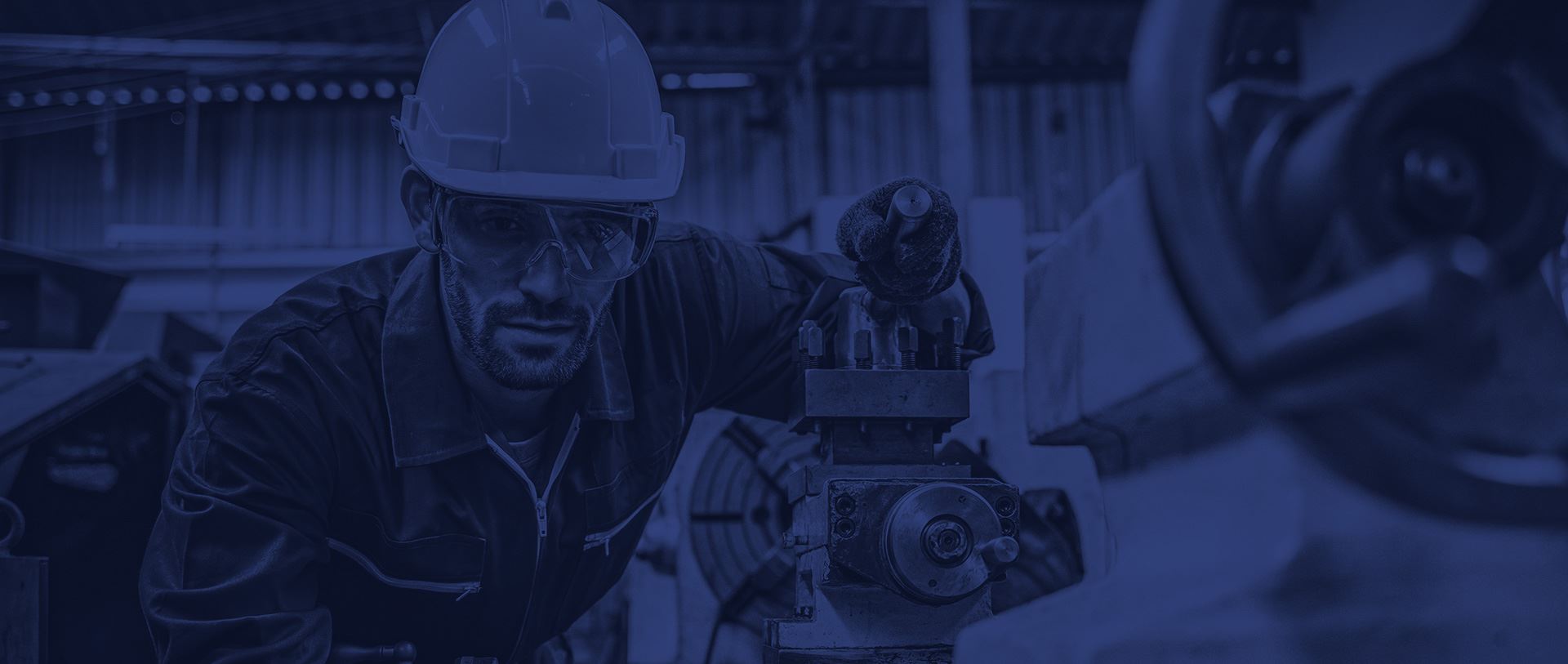Workers’ Compensation Hearing Lawyers in San Jose
Handling Hearings Before the WCAB
In California, the Workers’ Compensation Appeals Board (WCAB) will handle workers’ compensation denial cases and appeals. It does so by hosting hearings, during which both sides can prevent arguments and evidence to show why the workers’ compensation claim has either been handled correctly or mishandled.
Taking a case before the WCAB is a big undertaking, especially if you have reason to believe the opposing party will put up a fight. Give your case the support and guidance it needs by relying on Pacific Workers', The Lawyers for Injured Workers in San Jose. Our workers’ compensation hearing attorneys are always ready to help injured workers in our communities get the benefits or settlements that they deserve after a workplace accident.
Call (888) 740-6434 to see how we can help you with a WCAB hearing.
Initial Steps for a Workers’ Comp Hearing
When you first start working with our law firm, we will want to make sure that the reason why you are requesting a WCAB hearing is legitimate. For example, if your workers’ comp claim was denied, then we can review the denial letter and the circumstances of your injury to see if the denial was justified. Once we have confirmed that your case should move forward to a hearing, we can file the appropriate documents to take action against the insurance company or employer that denied the claim.
The hearing process can be divided into four steps:
- Conciliation: The conciliation step acts as the first chance to negotiate a different outcome or settlement with the help of a workers’ comp lawyer.
- Conference: The conference step puts both sides before a judge to present the groundwork for their arguments. This step allows the judge to deny the case, approve it for a hearing process, or compel an amicable solution.
- Hearing: The hearing process can feel the most involved, even like a courtroom trial with evidence and witnesses. We prepare every case for a hearing, even if we are hopeful that conciliation or conference will work.
- Reviewing board: If a hearing’s ruling is challenged by either party, the case can be appealed to the Reviewing Board to make a final decision. Involving the Reviewing Board is rare but not unheard of.
Preparing for the WCAB Hearing
Documents that can help our workers’ comp lawyers prepare for your WCAB hearing include:
- Medical records
- Unpaid medical bills
- Witness contact information and statements
- Anything else you think could be relevant
The preparation process can seem intimidating, but we will be by your side and provide full support and guidance. We want to make sure that you are ready for whatever the workers’ compensation hearing can involve.
What to Expect at WCAB Hearings
During a typical WCAB hearing, you can expect:
- Evidence presentation: Both sides of the case will be permitted to use evidence, testimonies, and more to support their arguments. Our attorneys will argue that your benefits should be provided correctly, and the opposing side – which could be an insurance company representative and not someone from your employer’s company – will argue that your benefits should be denied or limited.
- Courtroom disposition: Although a workers’ compensation hearing is not a courtroom case, it can feel like one in terms of procedures and professionalism. We can walk you through what to expect and what to do, which could be as simple as showing up and letting our attorney do all the talking and arguing for you.
- Judge’s ruling: It is common for a workers’ compensation judge (WCJ) to provide a ruling immediately after all arguments from both sides of a hearing have been concluded. Rulings or decisions can be en banc, significant panel, panel, or pend on appellate grants.The ruling could be out of your favor, which would mean that your claim is still denied. If this happens, then it might be possible to file another appeal. Hopefully, the ruling will be in your favor, though. If this happens, you could be provided the workers’ compensation benefits you were initially owed, or the insurance company could be compelled to offer a financial settlement that will cover your past and future losses instead.
Ready to Help from A to Z – Call Now
Pacific Workers', The Lawyers for Injured Workers in San Jose proudly represents injured workers in all industries with all manners of cases, including those that involve a hearing before the Workers’ Compensation Appeals Board. If you need any help at all with a workers’ comp hearing or a claim that could involve one, please don’t hesitate to reach out to us as soon as you can. You could have very little time to request a hearing or file an appeal, so dial (888) 740-6434 now.

We have Helped OVER 8,000 CLIENTS aND WE CAN HELP YOU TOO!
-
Thank you for being so kind and completely sympathetic to my case!
“I started my fight against my company's workers comp and after talking to Almarie for the first time I already felt a lot of weight off my shoulders. It feels nice to have someone fighting for your rights but also keeping you in check for your own good.”
Jazzie D. Daly City, CA -
They took care of me!
“Bilal worked on my case and he was very professional, friendly, and kind to me. I was so nervous about my deposition and he made me feel very comfortable and less stressed about the whole situation.”
Gabi O. Sacramento, CA -
The most down to earth team I have ever met!
“They have strong communication and I was respected throughout the whole process. They had never given up on me!”
Nekealla C. Tracy, CA -
I'm forever grateful & thankful to all!
“I especially want to thank Mr. Jason Insdorf, who worked in attaining a settlement I never expected.”
L.S. Union City, CA
Proudly Serving Northern California

Workers' Comp FAQ
-
Am I Eligible for Workers’ Compensation?
In California, all employees are eligible for workers’ compensation with very few exceptions. If you are classified as an “employee” (rather than an “independent contractor”), you are eligible to receive benefits. This is true regardless of how many employees your employer has, how many hours you work, how much you make, whether you work part-time or full-time, or whether you are a seasonal worker. Additionally, undocumented workers are also eligible for workers’ compensation granted they meet all other eligibility requirements. In contrast, independent contractors and certain other workers, including some volunteers, household workers who are employed by a family member, and others, are not able to file for workers’ compensation benefits.
-
Can't I Just File for Workers' Compensation on My Own?
Filing for workers' compensation on your own increases the chances that your claim will be denied. One small misstep can prevent you from obtaining the compensation you need for your injuries. In addition, the process is usually complex and tedious, especially for someone with no workers' compensation law experience. It is extremely advantageous that you seek reliable and experienced legal guidance for your claim.
-
What Can I Expect from the Workers' Compensation Process?
As soon as you reach out to us for help, we will assign you a full-time case manager and attorney. An application will be filed with the Workers' Compensation Appeals Board (WCAB) on your behalf. We will get started on your case immediately to help you receive the medical care you need. If we are unable to receive a fair settlement from the insurance company, we are ready and willing to take your case to trial. After a few months, you will most likely give a deposition. One of our highly experienced attorneys will prepare you and stand at your side the entire time. You don't even have to attend court hearings! One of our trained hearing officers or attorneys can attend on your behalf.
-
Can My Employer Tell Me to Use Sick Time or Vacation/Personal Time off (PTO) If I’m Injured at Work?
Following a work-related injury, you may not receive workers’ compensation benefits right away or your workers’ compensation claim may be denied. You may receive a note from your doctor that you may take time off work due to your injuries, but how will you be paid if you are not actively seeking workers’ compensation benefits? Your employer may tell you to use your state-mandated/employer-provided sick time in order to continue being paid while you are out of work. Once this sick time is exhausted, your employer may tell you that the only way you can continue to be paid is if you use your vacation or PTO time. In some cases, this may actually be the only way to continue receiving wages while you are out of work and not receiving workers’ compensation benefits. For more information, check out our video with Attorney Bilal Kassem on this topic by visiting our Facebook page!
-
Can I Get Workers’ Compensation If I Was Fired?
If you were terminated while already receiving workers’ compensation benefits, this does not necessarily affect your right to receive benefits. However, if you were terminated “for cause” (for example, if you were fired because you were caught stealing from your employer), you will not be able to continue collecting benefits. If you were not fired for cause, but were laid off due to your position being terminated or various other reasons, you may still be able to continue collecting your workers’ compensation benefits. If you believe you were terminated because you filed for workers’ compensation or because you were hurt at work, you may have grounds for a retaliation claim. Learn more, including whether you can continue receiving workers’ compensation benefits if you were laid off due to the coronavirus pandemic, see our video with Attorney Bilal Kassem on our Facebook page.














